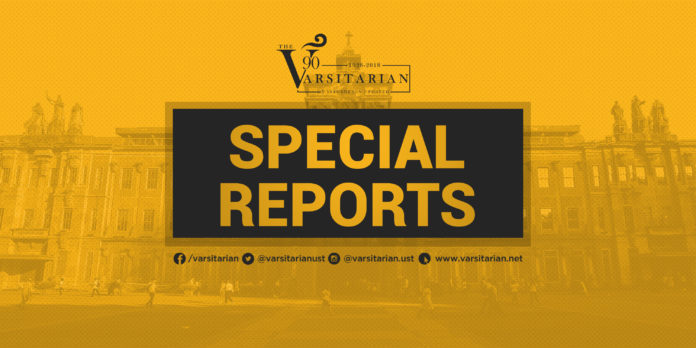THE Tax Reform for Acceleration and Inclusion (Train) Law should not be used by private schools to hike tuition because it does not directly affect the education sector, experts said.
Carlos Manapat, an economics professor at the Faculty of Arts and Letters, said the Train Law does not have a provision involving education.
“There is no direct relationship between those goods that will increase like gasoline prices and sweetened drinks, with tuition,” he said.
Filomeno Sta. Ana III, coordinator of the non-government organization Action for Economic Reforms, said the Train Law affects students and teachers more than the schools.
“It indirectly affects the costs related to pursuing education in the sense that students use public transport in going to school,” he said.
The school will only be affected with the surge in energy costs, which is “very minimal.”
“It will not warrant a high increase in tuition… We have figures to show for it,” Sta. Ana said.
The inflation in the prices of consumer goods and services also impacts the daily expenditures of students and parents, researcher Prinz Magtulis of the Financial Times added.
“Tuition is part of basic goods and services. If you increase it, there will be an effect on students. They have to shell out more on money to pay for their tuition,” he said.
In June, Commission on Higher Education (CHEd) officer in charge J. Prospero de Vera said 248 HEIs sought government approval to increase tuition and other fees due to the impact of the Train Law and the exodus of faculty members to state colleges and universities.
Magtulis stressed that citing the Train Law for tuition hikes alone was “unjustified and abusive.”
“Instead, schools can cite inflation to increase tuition,” he said. “A university can hike tuition to increase compensation of faculty members.”
The Philippine Statistics Authority (PSA) reported that inflation continued to rise, at 5.2 percent in June, compared with 4.6 percent in May.
Education lawyer Joseph Noel Estrada, however, does “not agree with the view that the Train Law has little or no effects” on higher education institutions, precisely because the law resulted in higher inflation.
With the “rising cost of operations due to inflation,” Estrada, a legal counsel of the Catholic Educational Association of the Philippines, said tuition hikes are justifiable.
“This is a very sensitive and critical management decision because if tuition increases substantially, it may get substantially low enrollment. It it does not increase, it may not be able to sustain its operations,” he added.
Train 2
The proposed second package of Train Law could either lead to the closure of public schools or further increase tuition, Estrada warned.
Under the proposed Train 2 package, the current 10 percent income tax of private schools could increase to 20 percent if the HEIs display poor performance.
Schools with level 1 accreditation, good passing rate records in licensure examinations and faculty members with master’s degrees are exempted from the income tax hike.
“This will further weaken the private schools,” Estrada said. “The law will affect their sustainability if that is passed and it will further drive their tuition higher.”
The Tax Reform for Attracting Better and High-Quality Opportunities or the Trabaho bill, a substitute to Train 2 approved by a House committee last Aug. 7, seeks to lower the 30 percent corporate income tax to 25 percent to attract new and growing industries.




















